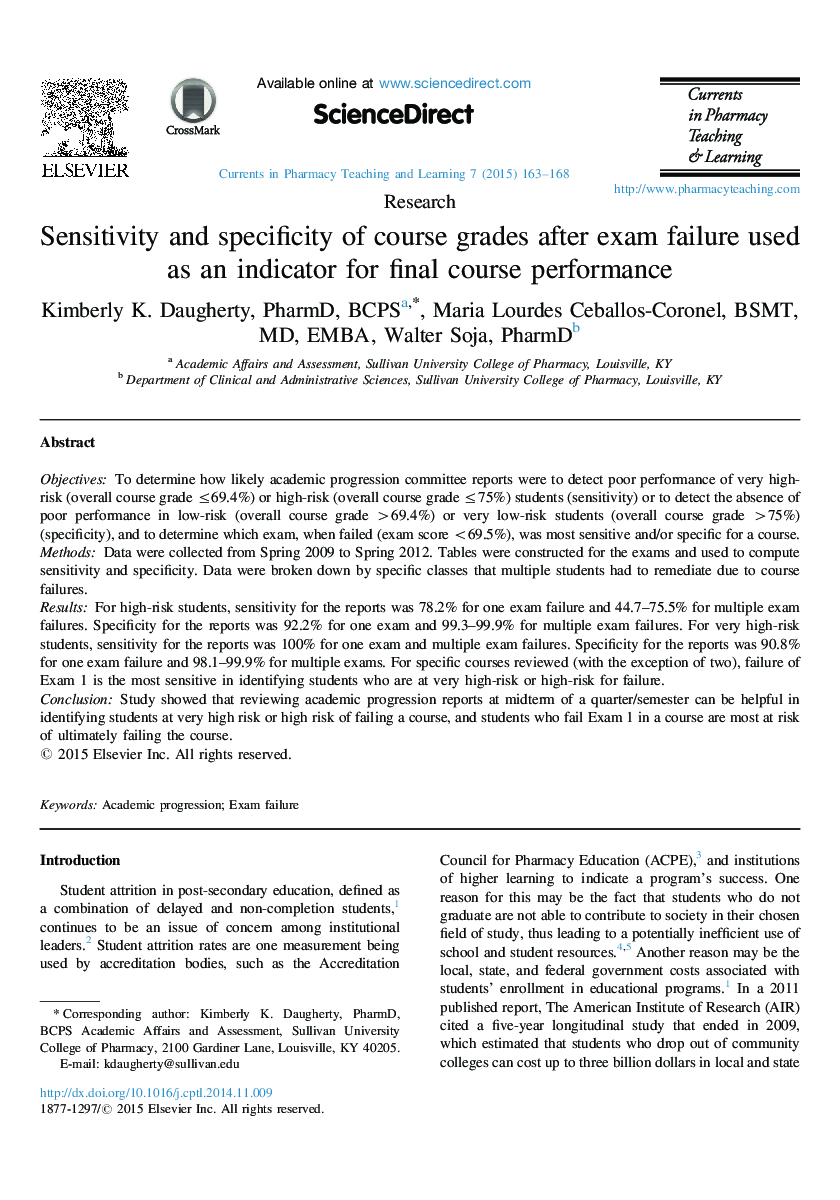| Article ID | Journal | Published Year | Pages | File Type |
|---|---|---|---|---|
| 353297 | Currents in Pharmacy Teaching and Learning | 2015 | 6 Pages |
ObjectivesTo determine how likely academic progression committee reports were to detect poor performance of very high-risk (overall course grade ≤69.4%) or high-risk (overall course grade ≤75%) students (sensitivity) or to detect the absence of poor performance in low-risk (overall course grade >69.4%) or very low-risk students (overall course grade >75%) (specificity), and to determine which exam, when failed (exam score <69.5%), was most sensitive and/or specific for a course.MethodsData were collected from Spring 2009 to Spring 2012. Tables were constructed for the exams and used to compute sensitivity and specificity. Data were broken down by specific classes that multiple students had to remediate due to course failures.ResultsFor high-risk students, sensitivity for the reports was 78.2% for one exam failure and 44.7–75.5% for multiple exam failures. Specificity for the reports was 92.2% for one exam and 99.3–99.9% for multiple exam failures. For very high-risk students, sensitivity for the reports was 100% for one exam and multiple exam failures. Specificity for the reports was 90.8% for one exam failure and 98.1–99.9% for multiple exams. For specific courses reviewed (with the exception of two), failure of Exam 1 is the most sensitive in identifying students who are at very high-risk or high-risk for failure.ConclusionStudy showed that reviewing academic progression reports at midterm of a quarter/semester can be helpful in identifying students at very high risk or high risk of failing a course, and students who fail Exam 1 in a course are most at risk of ultimately failing the course.
